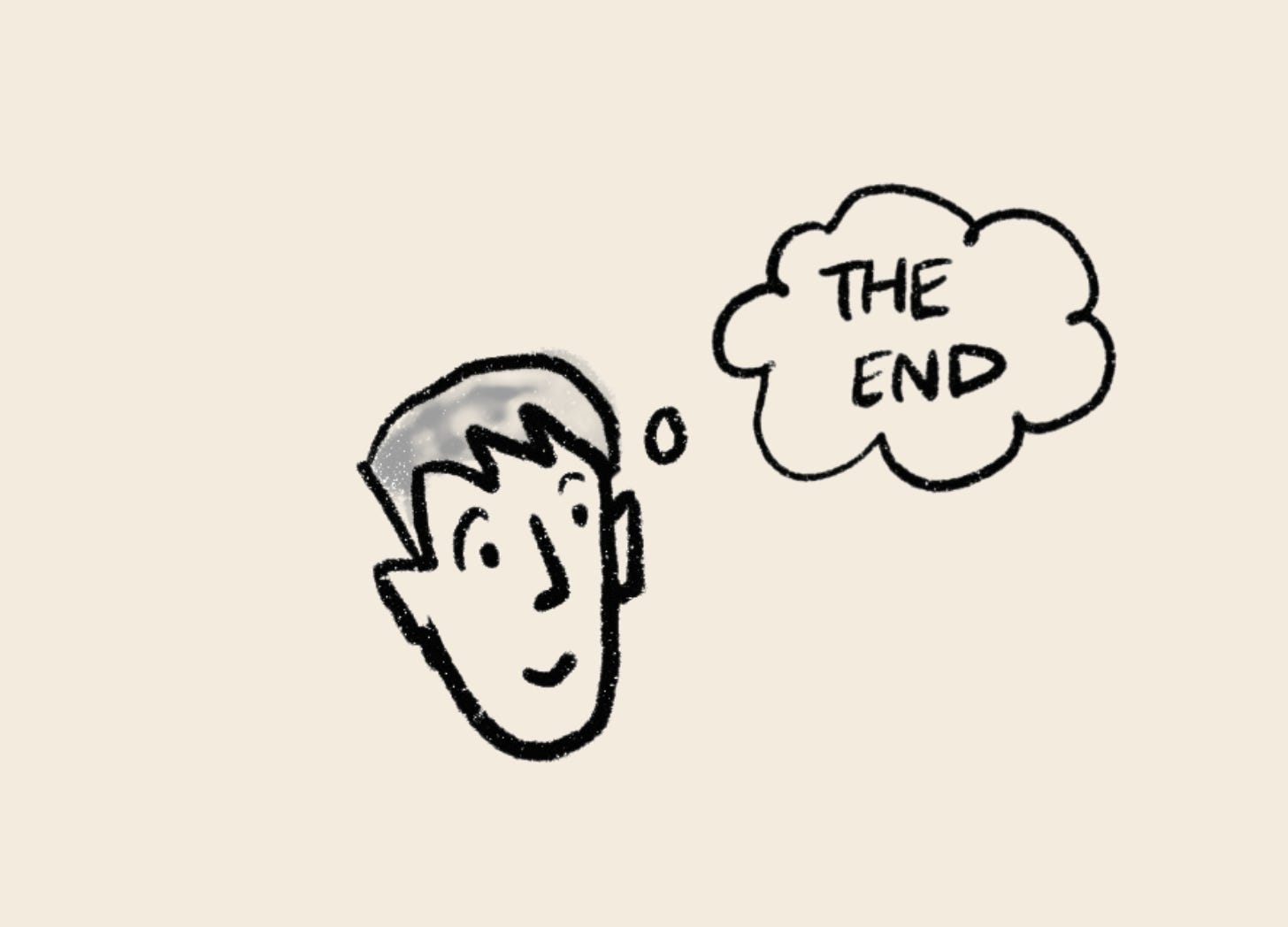Does dreaming big work?
The upsides and downsides of positive thinking, an exercise in visualising and why writing is like hanky panky in the backseat of a Volkswagen.
Have you ever written down a writing goal, articulated your dream for it, or perhaps created a master plan to map it out - and then done nothing to reach it?
If so, congratulations, you’re human! Researchers found that inaction is a very normal response to goal setting. While early research found that having goals helps us: ‘by directing attention, mobilizing effort, increasing persistence, and motivating strategy development,’1 later studies discovered that setting goals can have the opposite effect and lead to inaction and inertia. Huh?
Positive thinking: the upside
Let me introduce you to one of my favourite psychologists, Gabrielle Oettingen (yes, I’m a geek and I have many researcher crushes). Oettingen is one of the world’s leading authorities on goal setting and has been studying the field for decades.
She set out to study resilience by first looking at positive thinking. She wanted to explore why some people seemed to be able to meet their goals while other people struggled. How were these people different?
Oettingen found that positive thinking - I will become an internationally acclaimed writer of X - is good for our mood and a great way to explore possibilities about the future. She also found that dreaming of success relaxes us to the point of reducing our systolic blood pressure. How we think affects our physiology to such a degree it can measured.
Positive thinking: the downside
So that’s great news - isn’t it? Well, yes - and also no. While thinking positively about the future may make you feel super, Oettingen also finds that it’s terrible for getting anything done.
It seems that if you want to meet your goals, the last thing you want to feel is chilled out. “You want to be energised enough to get off the couch and lose those pounds or find that job or study for that test, and you want to be motivated enough to stay engaged even when the inevitable obstacles or challenges arise,” she writes.2
So, should we dream big or not?
Oettingen isn’t anti-positive thinking. She still believes dreaming big plays a role in helping us achieve our goals, but (and it’s a big but), that positive thinking alone isn’t enough.
Dreaming big is just the beginning, we need to do something else too - and that’s what we’ll dig into over the next couple of weeks.
But for now, we’re going to stay with that big dream, because having one can help get you off the starting blocks.
Keep going, Bec
Visualising the future
Last week, I ran the following exercise with doctoral students at a university and on another day with creative writers on an Arvon course. Over the years, we’ve used it with hundreds, perhaps thousands of writers. Why don’t you try it now?
Grab a pen and paper and take a few minutes to dream big.
Start by visualising your writing wish and imagining the best possible outcome for it.
Do this as vividly as possible - you might want to free write that future, perhaps time travelling to the end of 2023 when you’ve achieved your goal. Imagine that sense of achievement.
How are you feeling, thinking, what emotions are you experiencing?
What would you tell yourself or tell others? What will happen? What opportunities will come as a result?
We suggest setting a timer for five or six minutes. Don’t judge or edit - just explore the possibilities.
How was it for you?
When you’re done, why not post in comments how the exercise felt for you. Did you feel calm, relaxed, excited or energised? No need to tell us your dream - that’s your to keep (though we’d love to hear when you achieve it!)
Image credit: Graphic Change for Written: How to Keep Writing & Build a Habit That Lasts
Useful links
If you’re a fan of visualising the future you’ll love Debbie Millman’s Remarkable Life Deck: A Ten-Year Plan for Achieving Your Dreams. I first heard her talk about this exercise, based on one she was taught by her mentor Milton Glaser, on Tim Ferris’s podcast. Listen to: How to Design a Life — Debbie Millman.
Last week after sharing the link to the article Is My Writing a Hobby Or a Career? I heard the ever-inspiring Isabel Allende offer advice to writers saying, your writing is not a hobby!
She said: “This is not a hobby. This is not something you do in your spare time. Even if you have a day job, this is your main purpose in life, so you find the time. It is like falling in love. When you fall in love you find the place and the time to make love even if it is in the back seat of a Volkswagen.”
You can listen to the full interview on The Women’s Prize for fiction podcast S6 Ep11: Bookshelfie: Isabel Allende and if you’re keen to hear more of Allende’s advice on writing (and love making) check out her interview with Julia Louis Dreyfus, Julia Gets Wise with Isabel Allende.
If you want to have a go at visualising the future we wrote this post a while back with eight different exercises you can try. Also, check out Octavia Butler’s approach to goal setting.
Locke, E.A., Shaw, K.N., Saari, L.M., & Latham, G.P., ‘Goal setting and task performance: 1969–1980’, Psychological Bulletin, 90(1), 1981.
Oettingen, Gabriele, ‘Rethinking Positive Thinking: Inside the New Science of Motivation’ Penguin, 2015.









I know this feeling well! When I set a goal, write a big to-do list, or do some planning it absolutely calms me down. That's great when I am overwhelmed - it stops me panicking and makes it all feel possible. BUT it can make me feel like I don't need to 'do' the work.
Over the years, I've loved researching goal setting and it isn't simple. So much of it is all about the workplace, it's where we first encounter SMART and other such acronyms, and when it comes to creative work, we need a difference approach.